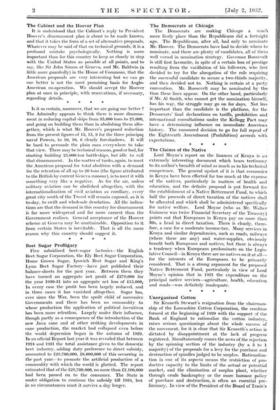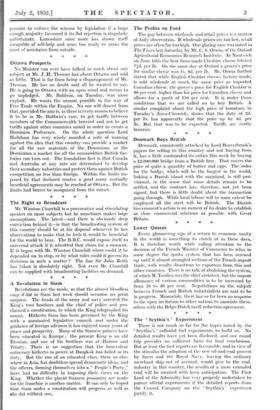Unorganised Cotton Sir Kenneth Stewart's resignation from the chairman- ship
of the Lancashire Cotton Corporation, the combine formed at the beginning of 1929 with the support of the Bank of England to rationalize the cotton industry, raises serious questionings about the whole success of the movement, for it is clear that Sir Kenneth's action is dictated by disappointment at the lack of progress registered. Simultaneously comes the news of the rejection by the spinning section of the industry (by a 3 to 1 majority) of the proposals for a levy for the purchase and destruction of spindles judged to be surplus. Rationaliza- tion in one of its aspects means the restriction of pro- ductive capacity to the limits of the actual or potential market, and the elimination of surplus plant, whether through crude bankruptcy or the more humane policy of purchase and destruction, is often an essential pre- liminary. In view of the President of the Board of Trade's promise to enforce the scheme by' legislation if a large enough majority favoured it its flat rejection is singularly unfortunate. Lancashire once more has shown itselt incapable of self-help and none too ready to make the Most of assistance from outside.







































 Previous page
Previous page